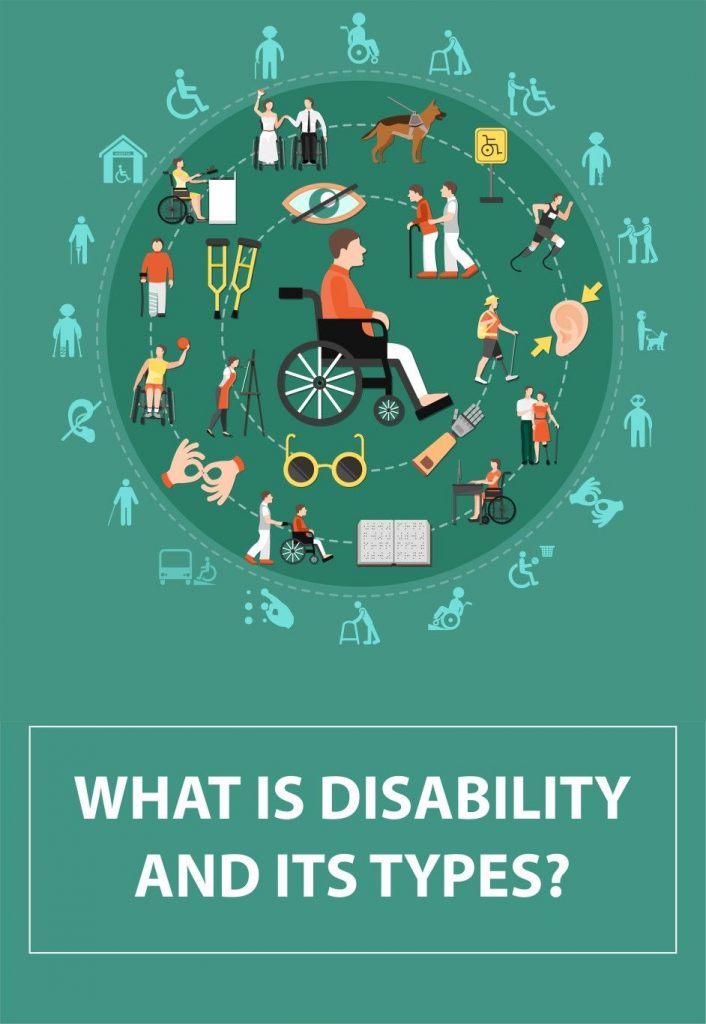What are the types of disability?
Knowing the types of disabilities is important to people who have or think they have a disability. When determining eligibility for programs or benefits, disability is often one of the criteria. If you believe you have a disability, you might be curious about what it is and the differences between them. This article will briefly discuss the main types.
What are the types of disability?

When someone is unable to perform their normal tasks due to physical disabilities, they are called “physical disabilities”. Some examples of physical disabilities include heart problems, diabetes and arthritis. Intellectual disabilities are when a person is unable to learn, think or concentrate properly. Examples of intellectual disabilities include Down syndrome, dementia, schizophrenia, and autism.
What are the types of disability?
As mentioned above, one of the main categories of disabilities is physical. People with a physical disability are usually disabled as a result of an injury, surgery or illness. These disabilities include paralysis and blindness, deafness, and amputation. Sometimes, mental disabilities can be difficult to identify because people with mental disorders may exhibit behaviors that are not consistent with the criteria. It is possible for people to suspect they have a psychological disability, but not necessarily have a true mental disability.
What are the types of disability?
Another major category of disabilities is mental disorders. People with disability services providers illnesses are often diagnosed early and treated promptly. They can range from schizophrenia to depression. Schizophrenia, the most common cause for death in those with mental disorders, is the number one. Some of the most common mental disorders include bipolar and schizoaffective disorders.
What are the types of disability?
Intellectual disability is another type of disability. Intellectual disabilities can impact brain development and behavior. For example, those with Alzheimer’s disease have difficulty remembering and speaking. Down syndrome sufferers have trouble learning physical skills. Dyslexia/dyspraxia, autism and dyslexia are all learning disabilities.
Some disabilities are not even considered disabilities. These include age-related disorders, such a blindness, hearing loss, or other communication problems; seasonal conditions, such a cataracts or seasonal affective disorder; diseases, such cancer and leukemia; weight gain; drug and/or alcohol addictions; genetic conditions; self-care disorders, such a yoga, Reiki, or Chi Kung. These types of disabilities were not usually addressed by the public policies in the past. These types of disabilities are now more often recognized by insurance companies as legitimate.
There are many things that can be considered disabled. Many disabilities do not manifest at birth. They only become apparent over time. This makes it difficult to find out what are the types of disability. One example is a person who has a short stature that lasts up to 40 years. However, the same person may experience long-term memory loss later on.
Many employers now offer disability insurance, which helps to cover some of the expenses associated with being disabled. Disability insurance can be used to pay for some of the living expenses of those who are unable to work. It may pay for a car, or another vehicle that is necessary to assist those in wheelchairs. It may even pay for certain chores and errands. Contact your employer for more information or visit the website to learn more about the types of disabilities.
You should go to the doctor if you believe that you have a disability. Bring along a copy your medical records. This should include details about the medications you are currently on and when you were born. Ask your doctor any questions you may have about your medical records. It is always better to be safe than sorry when it comes to your health.
The types of disability you have does not depend on your birth. Every possible disability is possible when you are born. Some disabilities only surface later in life, like a birth defect. Other disabilities only emerge after a lifetime of abuse or neglect.
There is no standard for what types of disability are. However, by considering the things listed above you can begin to make decisions as to what kind of disability you might have. If you think there could be a problem, seek the advice of a lawyer. This will help you to get the financial and medical help you need.